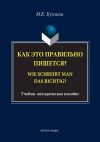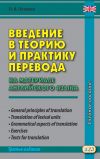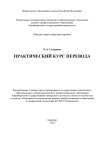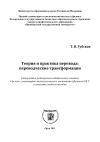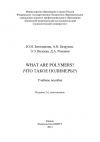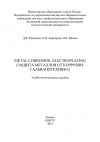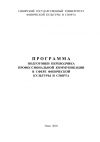Текст книги "Перевод и межкультурное взаимодействие"
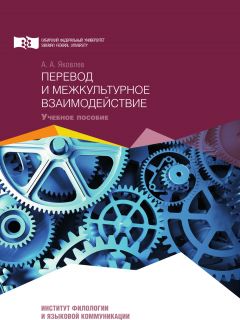
Автор книги: Андрей Яковлев
Жанр: Учебная литература, Детские книги
сообщить о неприемлемом содержимом
Текущая страница: 13 (всего у книги 17 страниц)
В некоторых ситуациях переводчику приходится не выражать смысл текста полностью собственными средствами, а частично брать уже готовые переводы. Например, когда британский журналист на английском цитирует речь российского политика, сказанную по-русски, то переводчику следует во избежание искажений смысла не переводить обратно цитату, а отыскать оригинал этой речи политика и взять отрывок оттуда. Это было бы наилучшим решением, которое, впрочем, не всегда возможно.
В рамках данного урока мы продолжим работу по оттачиванию средств переформулирования смысла текста.
Упражнение 1. Переведите текст, тщательно подбирая каждое слово к контексту, стилю и прагматике текста.
Can Dostoevsky Still Kick You in the Gut?
By David Denby
Many people would say that Dostoevsky’s short novel “Notes from Underground” marks the beginning of the modernist movement in literature. (Other candidates: Diderot’s “Rameau’s Nephew,” written in the seventeen-sixties but not widely read until the eighteen-twenties, and, of course, Flaubert’s “Madame Bovary,” from 1856.) Certainly, Nietzsche’s writings, Freud’s theory of neurosis, Kafka’s “Metamorphosis,” Bellow’s “Herzog,” Philip Roth’s “Portnoy’s Complaint,” perhaps Scorsese’s “Taxi Driver,” and half of Woody Allen’s work wouldn’t have been the same without the existence of this ornery, unstable, unmanageable text – the fictional confession of a spiteful modern Hamlet, an inhabitant of St. Petersburg, “that most abstract and pre-meditated city,” and a man unable to act and also unable to stop humiliating himself and embarrassing others. A self-regarding, truculent, miserable, paralyzed man. As I began reading “Notes” again recently (in Andrew R. MacAndrew’s translation for Signet Classics), I wondered if it had been overwhelmed by the books and movies that it has influenced. I wondered if “Notes” would seem like a dim echo, whether it still had the shock value that I remember from long ago.
The text itself purports to be the writings of a retired mid-level government bureaucrat. A family bequest has allowed him to quit his job, which he hated, and he is now forty, living with a servant whom he despises in what he calls “a mousehole.” In an introductory note, Dostoevsky explains that both the character and his “notes” are fictional, but that he represents a certain Russian type the public needs to know about. The underground man (the title, in Russian, literally means “notes from under the floorboards”) addresses an imaginary audience whom he refers to as “you” or “ladies and gentlemen” – presumably a representative group of educated, Westernized Russians. He alternately teases, insults, and abases himself before them. They are people besotted, he believes, with Western ideas of progress – the ideologies of utilitarianism, socialism, evolution, the greatest good for the greatest number, and so on. They are also enamored of German idealism – “the good and the beautiful” of Schiller’s rhapsodic writing. Is the underground man Dostoevsky himself? No, but he spouts many of Dostoevsky’s ideas and antipathies; the book is certainly an appropriate introduction to Dostoevsky the Slavophile reactionary who emerged in his final years.
But “Notes” is a canny work of literature, not a tract: Dostoevsky may have put his own ideas into the mouth of a brilliant man, but he undermined him as a self-destructive mess at the same time. The text, as academics might say, is multivalent, at odds with itself. It’s not so much that the underground man’s opinions are wrong – surely Dostoevsky thought that many of them were true, however wildly phrased – but that they were inseparable, like all opinion, from personal strengths and weakness, even personal pathology. We are inevitably subjective and self-justifying – that is one of the modern elements in the book. We are also entirely inconsistent. The underground man taunts his listeners, apologizes, criticizes himself, then gets aggressive, then collapses again. On and on. He pulls the rug out from underneath his own feet; he realizes he’s trapped in the prison of his own character. Hell is myself. No one would put up with this guy in his home for more than a half hour. He’s only possible – entertaining, funny, nasty – on the page.
The modern element in “Notes from Underground” is Dostoevsky’s exultation in human perversity. You can read this book as a meta-fiction about creating a voice, or as a case study, but you can’t escape reading it also as an accusation of human insufficiency rendered without the slightest trace of self-righteousness. If you begin by grieving for its hero, he upsets you with so much truth of our common nature that you wind up grieving for yourself – for your own insufficiency. “Notes” is still a modern book; it still can kick.
Задания
1. Проанализируйте и сравните несколько вариантов перевода. В каких из них средства перевода подобраны наилучшим образом?
2. Приходилось ли вам при переводе тех или иных элементов текста обращаться к первоисточнику – книге Ф.М. Достоевского?
Упражнение 2. Переведите текст, тщательно подбирая каждое слово к контексту, стилю и прагматике текста.
Lost in Translation: What the First Line of “The Stranger” Should Be
By Ryan Bloom
For the modern American reader, few lines in French literature are as famous as the opening of Albert Camus’s “L’Étranger”: “Aujourd’hui, maman est morte.” Nitty-gritty tense issues aside, the first sentence of “The Stranger” is so elementary that even a schoolboy with a base knowledge of French could adequately translate it. So why do the pros keep getting it wrong?
Stuart Gilbert, a British scholar and a friend of James Joyce, was the first person to attempt Camus’s “L’Étranger” in English. In 1946, Gilbert translated the book’s title as “The Outsider” and rendered the first line as “Mother died today.” Simple, succinct, and incorrect.
In 1982, both Joseph Laredo and Kate Griffith produced new translations of “L’Étranger,” each opting for Gilbert’s revised title, “The Stranger,” but preserving his first line. “Mother died today” remained, and it wasn’t until 1988 that the line saw a single word changed. It was then that American translator and poet Matthew Ward reverted “Mother” back to Maman. One word? What’s the big deal? A large part of how we view and – alongside the novel’s court – ultimately judge Meursault lies in our perception of his relationship with his mother. We condemn or set him free based not on the crime he commits but on our assessment of him as a person. Does he love his mother? Or is he cold toward her, uncaring, even?
First impressions matter, and, for forty-two years, the way that American readers were introduced to Meursault was through the detached formality of his statement: “Mother died today.” There is little warmth, little bond or closeness or love in “Mother,” which is a static, archetypal term, not the sort of thing we use for a living, breathing being with whom we have close relations. To do so would be like calling the family dog “Dog” or a husband “Husband.” The word forces us to see Meursault as distant from the woman who bore him.
What if the opening line had read, “Mommy died today”? How would we have seen Meursault then? Likely, our first impression would have been of a child speaking. Rather than being put off, we would have felt pity or sympathy. But this, too, would have presented an inaccurate view of Meursault. The truth is that neither of these translations – “Mother” or “Mommy” – ring true to the original. The French word maman hangs somewhere between the two extremes: it’s neither the cold and distant “mother” nor the overly childlike “mommy.” In English, “mom” might seem the closest fit for Camus’s sentence, but there’s still something off-putting and abrupt about the single-syllable word; the two-syllable maman has a touch of softness and warmth that is lost with “mom.”
So how is the English-language translator to avoid unnecessarily influencing the reader? It seems that Matthew Ward, the novel’s most recent translator, did the only logical thing: nothing. He left Camus’s word untouched, rendering the famous first line, “Maman died today.” It could be said that Ward introduces a new problem: now, right from the start, the American reader is faced with a foreign term, with a confusion not previously present. Ward’s translation is clever, though, and three reasons demonstrate why his is the best solution.
So if Matthew Ward finally corrected the mother problem, what exactly has he, and the other translators, gotten wrong? Writing of “The Stranger” ’s first line in the Guardian, Guy Dammann says, “Some openers are so prescient that they seem to burn a hole through the rest of the book, the semantic resonance recurring with the persistence of the first theme in Beethoven’s fifth symphony.”
The linguistic fluency of any good translator tells them that, syntactically, “Aujourd’hui, maman est morte,” is not the most fluid English sentence. So rather than the more literal translation, “Today, Mother has died,” we get, “Mother died today,” which is the smoother, more natural rendering. But the question is: In changing the sentence’s syntax, are we also changing its logic, its “mystical” deeper meaning?
The answer is a resounding oui!
Rendering the line as “Mother died today” completely neglects a specific ordering of ideas that offer insight into Meursault’s inner psyche. Throughout the course of the novel, the reader comes to see that Meursault is a character who, first and foremost, lives for the moment. He does not consciously dwell on the past; he does not worry about the future. What matters is today. The single most important factor of his being is right now.
The ordering of words in Camus’s first sentence is no accident: today is interrupted by Maman’s death. The sentence, the one we have yet to see correctly rendered in an English translation of “L’Étranger,” should read: “Today, Maman died.”
Задания
1. Проанализируйте и сравните несколько вариантов перевода. В каких из них средства перевода подобраны наилучшим образом?
2. Приходилось ли вам при переводе тех или иных элементов текста обращаться к книге А. Камю в её русском переводе?
Высказывание может выражать не одно действие, а несколько (высказывание может быть полипредикативным), поэтому эти действия (включая сюда состояние, явления и т.п.) в рамках высказывания получают некоторое временнóе соотношение. То есть эти действия могут быть слиты воедино (он вошёл, глядя на меня) или разделены, хотя будут относиться к одному временному промежутку (он вошёл и посмотрел на меня). В первом случае одно действие выступает как бы фоном для другого; такие же отношения имеют место и в рамках нескольких высказываний, но всякий раз эти действия относятся к одному периоду времени. Речь идёт не о реальных действиях в мире, а об их представленности в языковых элементах высказывания [ТФГ 2011: 235–236].
Такие отношения выделяются в особую семантико-синтаксическую категорию – таксис, средства выражения которой не ограничиваются только сложноподчинёнными конструкциями или конструкциями с причастием и деепричастием. Подумайте, какие ещё средства используются для выражения таксиса в русском языке и какие средства английского языка могут им соответствовать.
Таксис как соотношение нескольких действий никогда не существует отдельно, он всегда выражается совместно с другими семантическими категориями, составляя с ними смысл высказывания: с модальностью, условием, уступкой и т.п.
Упражнение 3. Выполните устный последовательный перевод или перевод с листа данных отрывков. Обратите внимание на то, какими средствами выражаются таксисные отношения при их наличии в высказываниях. Сравните несколько вариантов перевода.
1. – Господи, ну как можно быть такой безмозглой! – в сердцах воскликнул Павел. – Ты и дня не протянешь без его помощи! – Но в то же время Павел почувствовал себя виноватым и через минуту попросил прощения за свои слова.
2. Наша делегация направилась в Нью-Йорк на встречу с партнёрами, поставив перед собой цель продлить контракт на более выгодных для нас условиях, и твоя задача – не дать этой сделке сорваться.
3. He wanted to convince everyone that he is right and only his opinion has the right to exist. That was completely out of the blue, she started to cry, to shout, and to blame him in all deathful sins. Later, he would understand – she acted on the spur of the moment, but it would be later… now let’s come back to that sunny winter morning on the 21 of February. “I never could understand her” – he concluded, but at the same time he felt guilty and offered an apology for his words.
4. Он рассказал мне все детали, добавив, что потому торопился со мной связаться, чтобы предупредить об изменении даты командировки. Я понимал, что это очень серьёзная сделка и, чтобы всё прошло как по маслу, нужно приложить немало усилий и прекрасно разбираться в данной сфере. Я внимательно выслушал его и теперь знаю, как вести себя на этой встрече.
5. Меня удивили её выводы, я ей возражала – сказала, что совсем не разделяю её мнения. На что она никак не отреагировала, продолжала и дальше отстаивать свою точку зрения, говорить на повышенных тонах, и в конце концов не приняла никаких возражений и не ответила толком на вопросы.
6. For his 12-hour shift he earns about $4, but even this tiny income is desperately needed. His father was killed when a bomb hit their house in Homs, leaving his mother paralyzed. His 15-year-old sister has been married off to a 50-year-old Syrian man, because his mother thinks this is the best chance she has of a normal life.
7. Our delegation went to New York for meeting with our partners, setting a goal of enlarging our contract on more convenient conditions for us. At the very beginning I had a jaundiced view about this meeting, but still agreed to go. During the meeting, my boss said that our salaries are quite high and it would be absolutely comfortable for us to work with them for an idea, so to say. My boss always seems to be moving the goalposts, which makes it very difficult to know what he really wants.
8. I once had a boss who was independently rich, and when I asked him for a raise, he turned me down, adding that he, too, had forsaken a raise that year. A surge of anger, resentment and sheer hatred welled up in me, and were it not that I needed the job, I would have gone for his throat. His unthinking and unthinkable attempt to make common cause with me brought to mind Anatole France’s observation that “The law, in its majestic equality, forbids the rich as well as the poor to sleep under bridges, to beg in the streets, and to steal bread.”
9. Mindfulness meditation, the ancient and flourishing practice that increases awareness of random thoughts and redirects attention to the present moment, has been used to manage stress, depression and even chronic pain. Researchers in the department of psychological and brain sciences at the University of California, Santa Barbara, who have been studying the relationship between mindfulness and the tendency to let our minds drift away on “task-unrelated thoughts,” sought to find out. The higher the working memory, or an individual’s ability to keep in mind chunks of information and also use them, the better students tend to perform on reading comprehension tests.
10. Во второй главе книги рассмотрены основные модели чтения для буквенных и иероглифических языков, сделаны некоторые выводы как в методологическом, так и в лингвистическом плане, и, в частности, определено общее и специфическое в рассмотренных моделях. К сожалению, это единственная часть данной работы, заслуживающая внимания, так как остальной материал требует дополнений и более глубокой проработки.
11. In a recent paper, Heimann used Electroencephalography (EEG) to deepen our understanding of the role of visuo-motor cortices in handwriting categorization. In their experiment, Heimann asked individuals to observe Roman letters (belonging to the alphabet of the participant’s mother language), Chinese (unfamiliar) characters, and scribbles (judged by the participants as not being linguistic symbols).
12. Jacob knew that if he did not pass the test twice, he would have to start over and repeat the entire gruelling curriculum. If he then failed the firearms test again, he would be dismissed from the academy altogether, quashing perhaps his best shot at an unlikely ascension from war-ravaged Sudan into the American middle class.
13. He sat back. A sense of complete helplessness had descended upon him. To begin with, he did not know with any certainty that this was 1984. It must be round about that date, since he was fairly sure that his age was thirty-nine, and he believed that he had been born in 1944 or 1945.
14. Хоть он и убеждал Синтию миллион раз в том, что его с его бывшей женой больше ничего не связывает, было заметно, что, развернув письмо от Сары, он прочёл его несколько раз, улыбаясь и иногда глубоко вздыхая. Это заставило Синтию сгорать от ревности, она выбежала из комнаты, едва сдерживая слёзы.
Урок 25Продолжим, как и в предыдущем уроке, заниматься подбором так называемых лексических соответствий – слов, которые не являются прямыми словарными соответствиями, но при этом идеально подходят для перевода слова в данном контексте. И для этого вновь обратимся к публицистическим текстам.
Обратим также внимание на немаловажный нюанс, а именно: в тексте перевода средства выделения шрифта должны в точности соответствовать оригинальным. Особенно это касается научных текстов.
Упражнение 1. Переведите текст, тщательно подбирая каждое слово к контексту, стилю и прагматике текста.
Middle East Time Bomb: The Real Aim of ISIS Is to Replace the Saud Family as the New Emirs of Arabia
This article is Part II of Alastair Crooke’s historical analysis of the roots of ISIS and its impact on the future of the Middle East. My first article on this topic was “You Can’t Understand ISIS If You Don’t Know the History of Wahhabism in Saudi Arabia.”
On the one hand, ISIS is deeply Wahhabist. On the other hand, it is ultra radical in a different way. It could be seen essentially as a corrective movement to contemporary Wahhabism.
ISIS is a “post-Medina” movement: it looks to the actions of the first two Caliphs, rather than the Prophet Muhammad himself, as a source of emulation, and it forcefully denies the Saudis’ claim of authority to rule.
ISIS is indeed a veritable time bomb inserted into the heart of the Middle East. But its destructive power is not as commonly understood. It is not with the “March of the Beheaders”; it is not with the killings; the seizure of towns and villages; the harshest of “justice” – terrible though they are – that its true explosive power lies. It is yet more potent than its exponential pull on young Muslims, its huge arsenal of weapons and its hundreds of millions of dollars.
Its real potential for destruction lies elsewhere – in the implosion of Saudi Arabia as a foundation stone of the modern Middle East. We should understand that there is really almost nothing that the West can now do about it but sit and watch.
The clue to its truly explosive potential, as Saudi scholar Fouad Ibrahim has pointed out (but which has passed, almost wholly overlooked, or its significance has gone unnoticed), is ISIS’ deliberate and intentional use in its doctrine – of the language of Abd al-Wahhab, the 18th century founder, together with Ibn Saud, of Wahhabism and the Saudi project:
Abu Omar al-Baghdadi, the first “prince of the faithful” in the Islamic State of Iraq, in 2006 formulated, for instance, the principles of his prospective state … Among its goals is disseminating monotheism “which is the purpose [for which humans were created] and [for which purpose they must be called] to Islam…” This language replicates exactly Abdal Wahhab’s formulation. And, not surprisingly, the latter’s writings and Wahhabi commentaries on his works are widely distributed in the areas under ISIS’ control and are made the subject of study sessions. Baghdadi subsequently was to note approvingly, “a generation of young men [have been] trained based on the forgotten doctrine of loyalty and disavowal.”
Abd al-Wahhab’s advocacy of these ultra radical views inevitably led to his expulsion from his own town – and in 1741, after some wanderings, he found refuge under the protection of Ibn Saud and his tribe. What Ibn Saud perceived in Abd al-Wahhab’s novel teaching was the means to overturn Arab tradition and convention. It was a path to seizing power.
Abd al-Wahhab demanded conformity – a conformity that was to be demonstrated in physical and tangible ways. He argued that all Muslims must individually pledge their allegiance to a single Muslim leader (a Caliph, if there were one). Those who would not conform to this view should be killed, their wives and daughters violated, and their possessions confiscated, he wrote. The list of apostates meriting death included the Shiite, Sufis and other Muslim denominations, whom Abd al-Wahhab did not consider to be Muslim at all.
Wahhabism was forcefully changed from a movement of revolutionary jihad and theological takfiri purification, to a movement of conservative social, political, theological, and religious da’wa (Islamic call) and to justifying the institution that upholds loyalty to the royal Saudi family and the King’s absolute power.
And what is this “forgotten” tradition of “loyalty and disavowal?” It is Abd al-Wahhab’s doctrine that belief in a sole (for him an anthropomorphic) God – who was alone worthy of worship – was in itself insufficient to render man or woman a Muslim?
He or she could be no true believer, unless additionally, he or she actively denied (and destroyed) any other subject of worship. The list of such potential subjects of idolatrous worship, which al-Wahhab condemned as idolatry, was so extensive that almost all Muslims were at risk of falling under his definition of “unbelievers.” They therefore faced a choice: Either they convert to al-Wahhab’s vision of Islam – or be killed, and their wives, their children and physical property taken as the spoils of jihad. Even to express doubts about this doctrine, al-Wahhab said, should occasion execution.
The point Fuad Ibrahim is making, I believe, is not merely to reemphasize the extreme reductionism of al-Wahhab’s vision, but to hint at something entirely different: That through its intentional adoption of this Wahhabist language, ISIS is knowingly lighting the fuse to a bigger regional explosion – one that has a very real possibility of being ignited, and if it should succeed, will change the Middle East decisively.
For it was precisely this idealistic, puritan, proselytizing formulation by al-Wahhab that was “father” to the entire Saudi “project” (one that was violently suppressed by the Ottomans in 1818, but spectacularly resurrected in the 1920s, to become the Saudi Kingdom that we know today). But since its renaissance in the 1920s, the Saudi project has always carried within it, the “gene” of its own self-destruction.
Задание
Проанализируйте и сравните несколько вариантов перевода. В каких из них средства передачи смысла подобраны наилучшим образом?
Упражнение 2. Переведите текст, тщательно подбирая каждое слово к контексту, стилю и прагматике текста.
Деятельность и знание
В педагогике существует больная и, если вдуматься, странная проблема, формулируемая обыкновенно как проблема «применения знаний в жизни, в практике». Факт есть факт – то и дело оказывается, что выпускник школы (как средней, так и высшей) становится в тупик перед задачей, возникшей перед ним вне стен школы, не умея знание «применить».
Отсюда легко возникает представление, будто в составе человеческих способностей имеется (или должна иметься) особая способность каким-то образом «соотносить» знание и его предмет, т.е. реальность, данную в созерцании. Это значит, что имеется (или должна иметься) особого рода деятельность соотнесения знания и предмета как двух разных, отличных от самого человека, «предметов», одним из коих оказывается знание, заключенное в общих формулах, наставлениях и положениях, а другим – чувственно-данная, т.е. никак не формализованная, неразбериха явлений.
Между тем есть серьёзный резон думать, что сама проблема, которую таким образом пытаются решить, возникает лишь потому, что «знание» задано человеку в неадекватной форме, или, говоря грубее, представляет собой не действительное знание, а всего-навсего похожий на него суррогат.
В самом деле, знание в точном смысле этого слова есть всегда знание предмета. Определённого предмета, ибо невозможно знать «вообще», не зная определённой системы явлений, будь то явления химического, психического или иного ряда.
Но ведь в таком случае сама фраза о трудностях «применения» знания к предмету оказывается достаточно несуразной. Знать предмет – и «применять» это знание – знание предмета – к предмету? В лучшем случае это лишь неточный, путающий способ выражения какой-то иной, скрывающейся за ним ситуации. Предмет тут – всегда словесно оформленный предмет, – в том виде, в каком он существует до словесно-знакового «оформления», до его оречевления, он вообще в составе этой концепции не мыслится, не существует для неё.
Потому-то реальная проблема познания предмета и оборачивается тут задачей чисто лингвистического свойства – задачей усвоения сначала наличного языка («языка науки»), а затем – усвоения «фактов» в формах этого (наличного) языка. Естественно, что решается эта задача с помощью изощрённой лингвистической ловкости, позволяющей любые «данные» выразить так, чтобы они влезали без скрипа, без противодействия, в наличный «языковой каркас», в наличное «знание».
Действительное решение проблемы «соотнесения» знания с предметом может заключаться, по-видимому, единственно в том, чтобы с самого начала предвидеть и устранить самую возможность её возникновения, ибо, если уж она возникла, то как заведомо неразрешимая.
Это значит – организовать процесс усвоения знания как знания предмета, в самом точном и прямом смысле этого слова. В том самом смысле, который неопозитивистская философия старается дезавуировать обидными словечками, вроде «грубый» и «метафизический», – как вне и совершенно независимо от сознания (и от языка) существующий во всей его упрямой определённости предмет. Не как отдельная «вещь», которую всегда можно рассматривать и представлять особо, не обращая внимания на её окружение, а именно как система вещей, обладающая своей, ни от какого языка не зависящей, «внеязыковой», организацией и связью, – как конкретное целое.
Только на этом пути и может быть преодолён вербализм, эта застарелая болезнь школьного образования, создающая в итоге пресловутую проблему «применения» знания к жизни, «соотнесения» знания и предмета, а на самом-то деле словесной оболочки знания и «предмета», о котором в действительности не знают ничего или почти ничего сверх того, что уже сказано, что уже выражено в слове и высказывании.
Задание
Проанализируйте и сравните несколько вариантов перевода. В каких из них средства передачи смысла подобраны наилучшим образом?
Мы уже касались того, что таксис может быть зависимым (он входил, глядя на меня) и независимым (он входил и смотрел на меня), которым соответствуют различные синтаксические структуры [ТФГ 2011: 240–242]. Важно понимать, что сохранение типа таксиса не всегда необходимо при переводе, т.к. соотношение действий может быть попросту нерелевантным для общего смысла высказывания. Поэтому переводчику нечасто приходится следить за сохранением зависимого или независимого таксиса в тексте перевода: его сохранение диктуется смыслом и так или иначе будет ясно.
Упражнение 3. Выполните устный последовательный перевод или перевод с листа данных отрывков. Обратите внимание на то, какими средствами выражаются таксисные отношения при их наличии в высказываниях. Сравните несколько вариантов перевода.
1. Зачастую люди несведущие считают, что одно только знание языка позволяет переводчику с лёгкостью переводить любые тексты. На самом деле всё не так просто. Нам приходится часто листать словари, выискивая там именно те слова, которые наиболее подходят. Ведь главное не просто заменить слова одного текста словами другого, а передать смысл. Причём не потеряв и, что ещё важнее, не добавив ничего лишнего.
2. In 2006, scientists reported that the number of pandas living in the wild may have been underestimated at about 1,000. Previous population surveys had used conventional methods to estimate the size of the wild panda population, but using a new method that analyzes DNA, scientists believe the wild population may be as large as 3,000. Although the species is still endangered, the conservation efforts are thought to be working. The giant panda is among the world’s most adored and protected rare animals, and is one of the few in the world whose natural inhabitant status was able to gain a UNESCO World Heritage Site designation.
3. While pseudobulbar affect [псевдобульбарный синдром] can cause normal reactions, such as a chuckle following a joke, to become exaggerated, the emotional responses sometimes run contrary to the actual emotion the patient is feeling, or have nothing to do with it at all. “Different patients suffer it in different ways” says Dr. Brian Greenwald. “Sometimes they’ll be hysterically crying but not actually feel upset. Sometimes they are angry but it comes out as laughter. It can be incredibly frustrating to live with because it starts to interfere with one’s social and professional life” he says.
4. I’m a chemist, who’s been working at the prestigious university in Chicago for 10 years. I spend most of my time, carrying out big researches, teaching my students, and, of course, making experiments. But you know what? My experiments… What a big deal! What I’m really proud of is my family and my friends. My grandpa used to say: “All life is an experiment. The more experiments you make the better.” Actually, he’d stolen this quote from Ralph Emerson, but still…
5. Исследуя работы ведущих отечественных лингвистов, невозможно оставить без внимания собрание избранных трудов Ольги Владимировны Буйко. Книга посвящена вопросам сравнительной лингвистики. В первой главе автор изучает статистически преобладающие черты всех языков как эмпирически (индуктивно), так и дедуктивно, анализируя общие тенденции функционирования языка. Во второй главе книги рассмотрены основные модели чтения для буквенных и иероглифических языков, сделаны некоторые выводы как в методологическом, так и в лингвистическом плане, и, в частности, определено общее и специфическое в рассмотренных моделях.
- ВКонтакте
- РћРТвЂВВВВВВВВнокласснРСвЂВВВВВВВВРєРСвЂВВВВВВВВ
- Telegram
- Viber
Правообладателям!
Это произведение, предположительно, находится в статусе 'public domain'. Если это не так и размещение материала нарушает чьи-либо права, то сообщите нам об этом.
